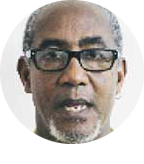
The word borrow usually relates to repayment and is usually the best way to obtain monies up front, to pursue economic needs. Projects all depend on money to get off-the-ground, but it is the ‘how to pay back in a timely manner’ factor that remains the problem.
Granted, as Governments change, it is always the new government, or regime that must deal with the former’s borrowing and the consequences of deals made to make the previous government look good.
Of late, local regimes have had to forsake charging too many taxes to give people a break as they grapple with the existing cost of living that’s rising daily. The lending source cares not how the monies for goods and services are obtained, their prime concern is getting paid back and profiting from their investment, which was the original loan.
On the other hand, few Governments in the region consider reducing on imported goods in favour of local produce and to enhance local purchasing. So, in other words, we must pay the piper; and since our taste buds have gotten acquainted to the foreign taste and services, we find it hard to seek alternative sources, especially local.
There is also the problem of local prices being more expensive than imported goods in some circumstances, so based on volumes of imports and availability, as well as frequency and consistency, foreign suppliers seem more reliable and attractive than what’s offered here by most dealers, regardless of the cost.
To create a balancing act, the state will have to change some methods, but they do not want to create panic or a crisis in the process. The more they import, the more revenue the state gains through taxation and the middleman favours imports, because he profits more from such transactions.
The First World cares only about themselves. They always seem to offer our people a better deal than the local businesses and that leaves us very little choice. We are governed by what is the norm, we protect our interest by being nice to foreigners, so they can, in turn, continue assisting us.
But we must remember that nothing is for free, expensive, or cheap you still have to pay, but if you don’t develop local production processes and products, you’ll always be in this bind.
The world is changing, and we have to change with it, so we have to think more of self-interest than to worry about others’ interests. We need to govern with a new sense of urgency, transform this economy by looking inward, transfer the incentives to local enterprise, purchase more from the locals, regulate home costs and prices and bargain with the locals to see sense in this new concept.
We must stop selling ourselves short, we must build from within, become more self-sufficient and become more reliant on ourselves, because that will be better for our Country.
It is only then that we will grow our people and reduce our dependency on the outside world and be able to share the profits locally, so more people can benefit.
Our future depends on transitions that put us first. Failing to go that way will only profit some, while the majority continue to feel the pinch. If you pay attention to the first world, they always entice the best among us to migrate in search of a better life elsewhere and they continue to drain us of our human resources on the grounds you will get better pay and living conditions because conditions in their country are far better than ours, plus they can offer us the additional health care and other services that we lack.
All of that we badly need, and the bribe strategy works every time. We are always in need of better and we never seem to realize the catch, until too late. But behold, the time will come when you just may be stuck in a land of no return and that giving-up of your birthright may just become your downfall.
Remember too that what you sow is what you will reap and the choices you make today may become crucial tomorrow – and don’t ever forget that.












